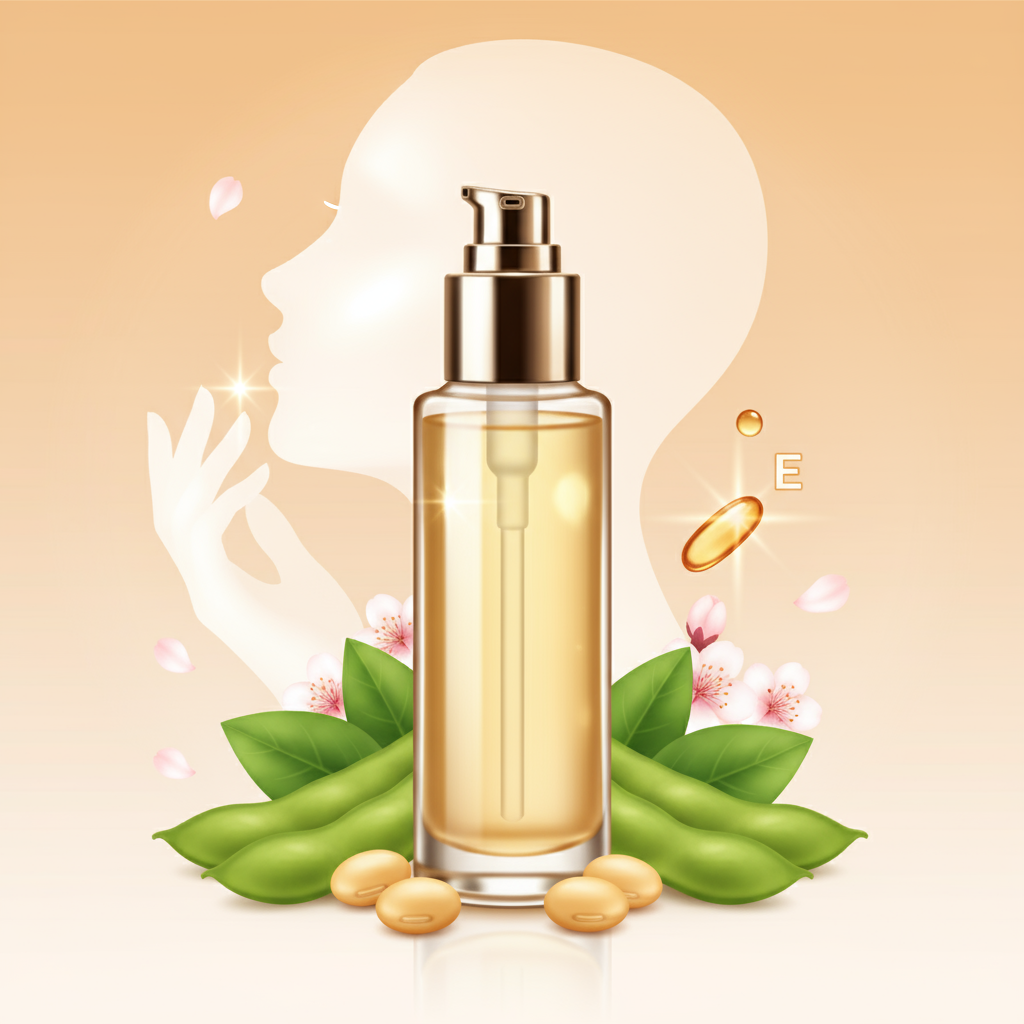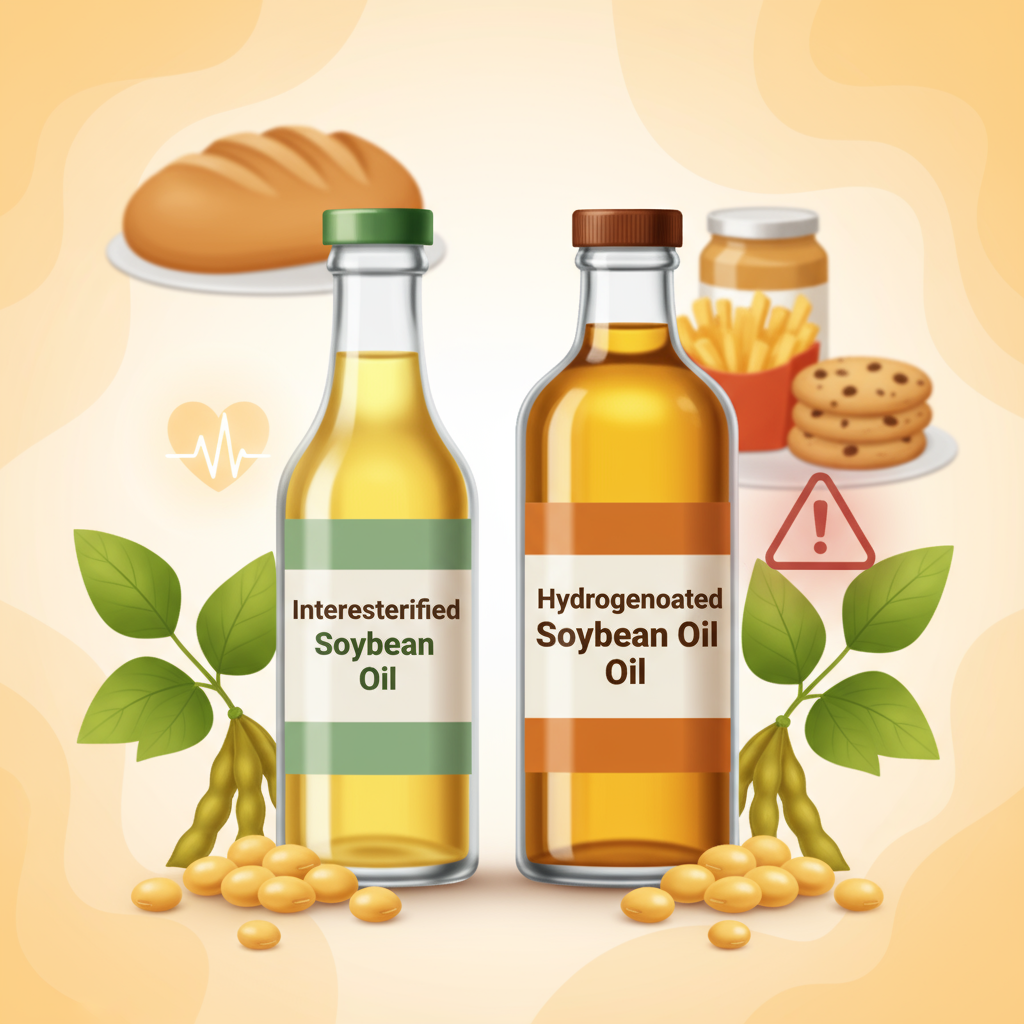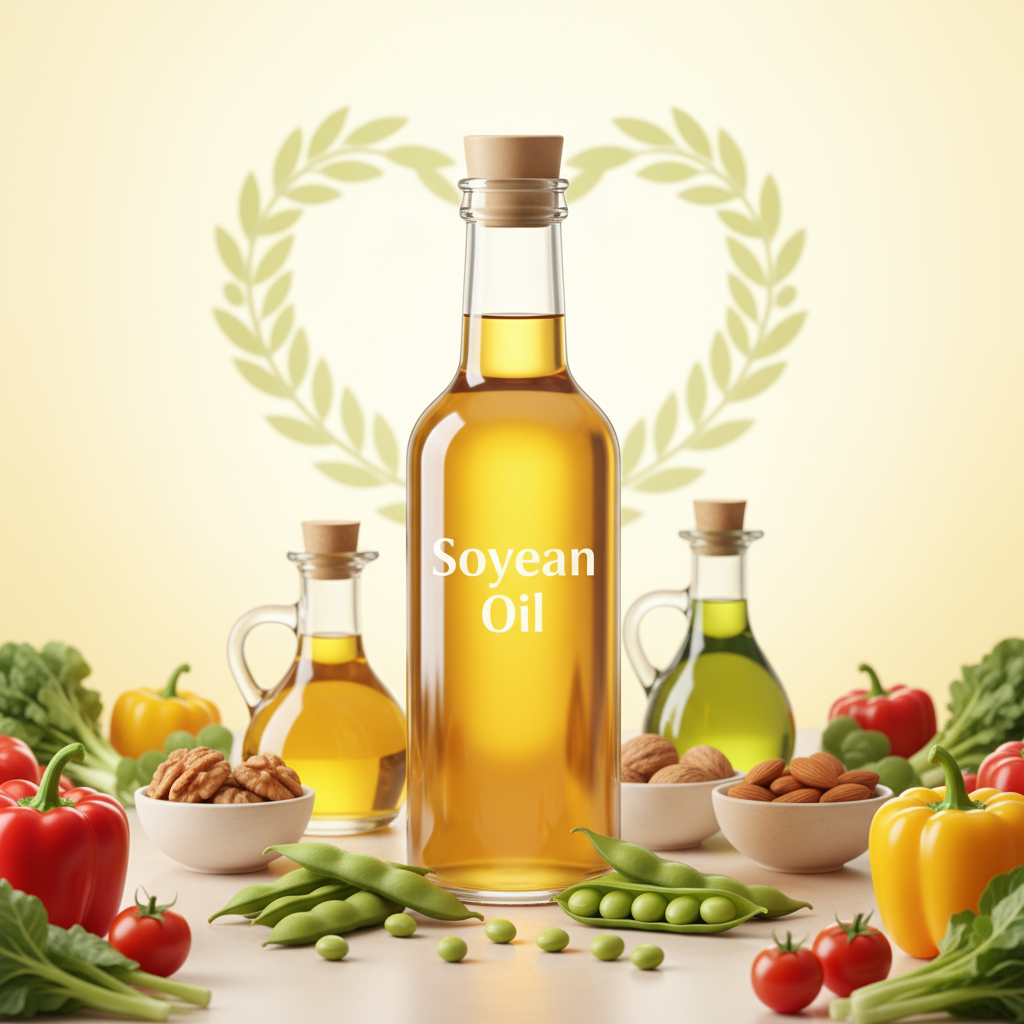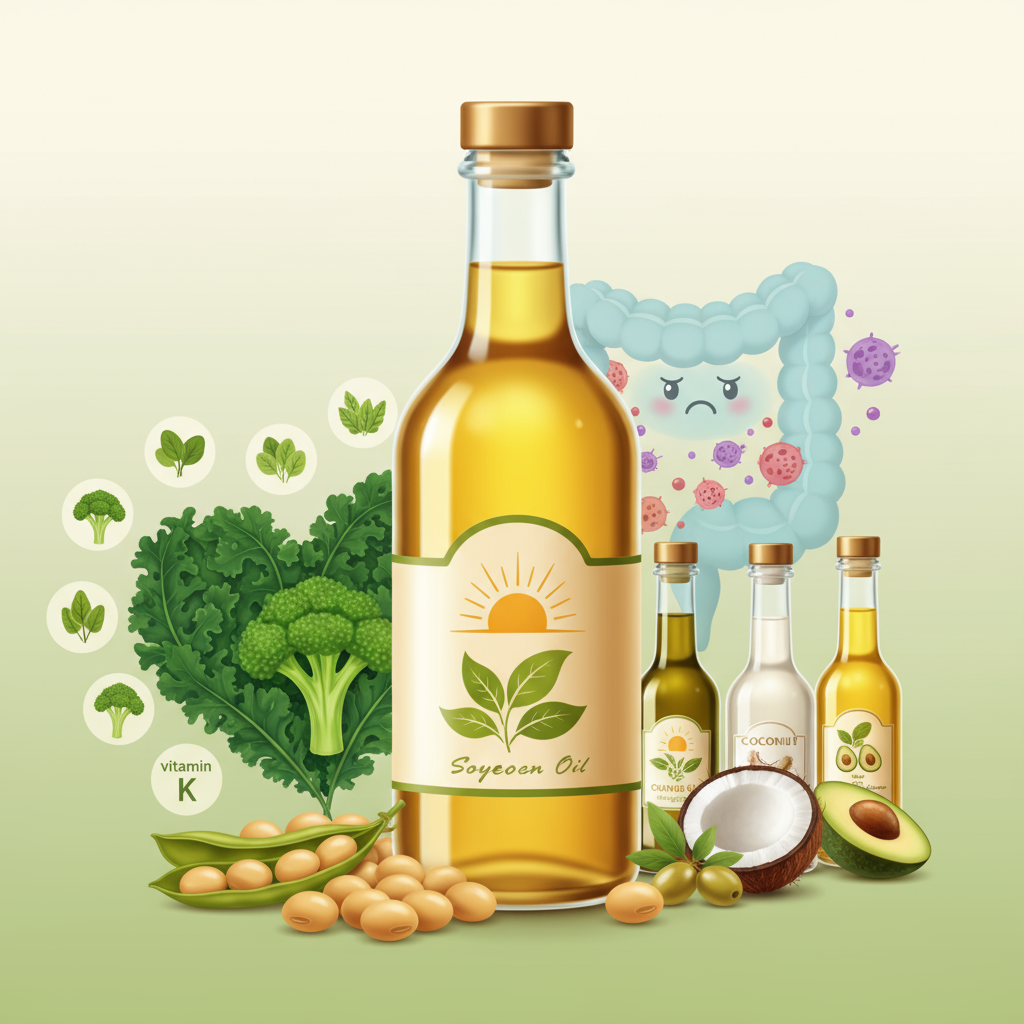
Is Soybean Oil Good for Skin? Exploring Its Benefits and Risks
TL;DR
Soybean oil is a popular ingredient in skincare products due to its moisturizing, anti-inflammatory, and anti-aging properties. It is rich in essential fatty acids and vitamin E, making it beneficial for dry and irritated skin. However, it may not be suitable for everyone, particularly those with oily or acne-prone skin, due to its slightly comedogenic nature. Additionally, there are concerns regarding its potential estrogenic effects, especially for men. Always perform a patch test before using soybean oil topically.
Soybean oil, derived from the seeds of the soybean plant, is increasingly recognized for its multifaceted benefits in skincare. Its unique composition makes it a valuable ingredient in various cosmetic formulations, from moisturizers to anti-aging serums. However, while it boasts numerous advantages, some potential risks warrant consideration. This article delves into the benefits and drawbacks of using soybean oil for skin care, providing insights to help you make informed decisions.
Soybean oil is abundant in essential fatty acids, particularly Omega-3 and Omega-6, which are crucial for maintaining skin barrier function and hydration. These fatty acids help reduce dryness and irritation, making soybean oil an effective moisturizer for various skin types, especially those prone to dryness or atopic conditions (Typology, 2023).
Another significant benefit of soybean oil is its high vitamin E content, a powerful antioxidant that protects the skin from free radicals. This property helps combat oxidative stress, which can lead to premature aging and skin damage (Typology, 2023; Skin Type Solutions, 2023).
The emollient nature of soybean oil allows it to penetrate deeply into the skin, providing long-lasting hydration without a greasy residue. This makes it an excellent choice for individuals seeking a lightweight moisturizer (US Soy, 2023).
Soybean oil has notable anti-inflammatory properties, helping to soothe redness, irritation, and itching. This makes it particularly beneficial for sensitive or inflamed skin (Typology, 2023; Skin Type Solutions, 2023).
Research indicates that soybean oil may help slow down the signs of aging by stimulating collagen and elastin production, essential proteins that maintain skin firmness and elasticity (Typology, 2023). Additionally, its moisturizing properties can help prevent the formation of fine lines and wrinkles.
Despite its many benefits, soybean oil has a comedogenicity index of 2, indicating that it can clog pores in some individuals, particularly those with oily or acne-prone skin. Therefore, it is advisable for such individuals to use soybean oil sparingly or consider alternative non-comedogenic oils (US Soy, 2023).
Soybean oil contains isoflavones, which may mimic estrogen in the body. While the amounts present in soybean oil are minimal, concerns have been raised about its potential impact on hormonal balance, especially in men (Skin Type Solutions, 2023). If you have concerns regarding estrogen levels, it may be wise to consult a healthcare professional before incorporating soybean oil into your skincare routine.
Individuals with a known soy allergy should avoid using soybean oil in any form, as it may trigger allergic reactions (Typology, 2023).
If you decide to incorporate soybean oil into your skincare routine, consider performing a patch test first. Apply a small amount of oil to a discreet area of skin, such as the inside of your elbow, and wait 24 hours to check for any adverse reactions. This precaution can help ensure that your skin tolerates the oil well.
Soybean oil offers a range of benefits for skin care, including hydration, anti-inflammatory effects, and antioxidant protection. Its versatility makes it a popular choice in many cosmetic formulations. However, it may not be suitable for everyone, particularly those with oily skin or concerns about hormonal effects. As with any skincare ingredient, it is essential to consider your skin type and perform a patch test before regular use.
Soybean oil is rich in essential fatty acids and vitamin E, offering moisturizing, anti-inflammatory, and anti-aging benefits. It helps hydrate dry skin, soothes irritation, and protects against oxidative stress, making it suitable for various skin types.
Yes, soybean oil has a comedogenicity index of 2, which means it can clog pores for some individuals, particularly those with oily or acne-prone skin. It's advisable to use it sparingly if you have these skin types.
Soybean oil contains isoflavones that may mimic estrogen in the body. While the amounts are minimal, there are concerns about potential hormonal effects, especially in men. Consulting a healthcare professional is recommended if you have such concerns.
Before using soybean oil, perform a patch test by applying a small amount to a discreet area of skin, like the inside of your elbow. Wait 24 hours to check for any adverse reactions to ensure your skin tolerates it well.

Uses for Remaining Soybean Products After Soy Oil is Consumed for Biodiesel
TLDR Soybean oil, a key ingredient in biodiesel production, leaves behind valuable byproducts such as soybean meal and fiber. These byproducts are primarily used in animal feed, human food products, and various industrial applicat...

Interesterified Soybean Oil vs. Hydrogenated Soybean Oil: What You Need to Know
TL;DR Interesterified soybean oil and hydrogenated soybean oil are two types of fats used in food production. Interesterification involves rearranging fatty acids in triglycerides to modify their properties without creating trans ...

Is Soybean Oil Healthy? A Comprehensive Guide
TLDR Soybean oil is a widely used cooking oil known for its high levels of unsaturated fats and omega fatty acids. It carries an FDA-qualified health claim suggesting it may reduce the risk of coronary heart disease when consumed ...

Is Soybean Oil Bad? A Comprehensive Guide
TL;DR Soybean oil is a widely used cooking oil that has both health benefits and potential risks. While it is low in trans fats and may reduce the risk of heart disease, excessive consumption can lead to health issues such as obes...
Ready to source an ingredient?
Whether you’re struggling to find the perfect ingredient, racing against the clock, or simply don’t have the bandwidth to manage sourcing — we’ve got your back.
Get a Free Sourcing AuditSavings is BIG but the relationship value is MASSIVE! Glad we met when we did. Looking forward to building this partnership with you and David.
Yohan, here to say you’re one of my favorite suppliers. Aside from your high quality ingredients, you’re so great to work with. Thanks for all the help you’ve given us this year.
Working with Global Savors and Yohan has been very smooth when sourcing ingredients. They offer a great selection and and cost savings! Yohan has been awesome to work with and we look forward to continuing business together.






Global Savors is your trusted partner for seamless ingredient sourcing, offering end-to-end solutions that streamline procurement, simplify logistics, and elevate your supply chain efficiency.
View More News
© 2026 Copyrights by Global Savors. All Rights Reserved

